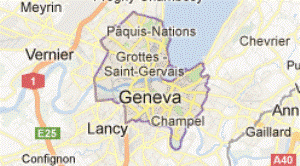NYT POLICY » NYT WORDS » RACE
Dropping the “I” Word
October 24, 2012 · 1 Comments
Source: The Progressive
By Erik Lorenszonn:
The “i-word” could stay entrenched in our national vocabulary for some time to come, if the Associated Press and The New York Times have anything to say about it.
Both news groups refused the request from journalist Jose Antonio Vargas to stop using the term “illegal Immigrant” in their writing.
Here is a roundup of the justifications used by the AP and the Times:
1. Illegal immigrant is clear, accurate, and concise.
2. Vargas’s suggested substitutes are unacceptable. The leading candidate, “undocumented immigrant,” sounds ambiguous and euphemistic. It’s also inaccurate, says Tom Kent of the AP: “Many illegal immigrants aren’t ‘undocumented’ at all; they may have a birth certificate and passport from their home country, plus a U.S. driver’s license, Social Security card or school ID.”
3. Vargas’s argument that illegal immigrant is a dehumanizing term—by calling a person, not an act, illegal—is irrelevant. When the Times and AP use illegal, it refers to the act of immigrating in violation of the law, not to a person. Kent observes that the AP also uses the terms “illegal miner” and “illegal logger” in the same vein.
4. One of Vargas’s main points is that unauthorized immigration is a civil offense, not a criminal one. The AP dismissed the observation as irrelevant, since civil offenses are also illegal. As was written in Kent’s memo: “We do not say ‘criminal immigrant.’ ”
5. Neither group feels that it reduces the issue of immigration to a label. Their overall reportage provides nuance and complexity to contextualize their terminology.
The conclusion reached by The Times’ public editor Margaret Sullivan: Removing “illegal immigrant” from newspapers does not benefit readers.
I’m with Vargas, but it’s likely that even he acknowledges the virtue of some of these points.
Law is not my bailiwick, but the distinction between civil and criminal offenses in this matter strikes me as being neither here nor there.
Kent’s argument regarding the documentation of unauthorized immigrants is silly (it’s pretty obvious what sort of documents we’re
talking about here), but perhaps the proposed substitution terminology could be a touch improved.
I’d be remiss to ignore the quality (albeit imperfect) journalism produced by both parties that complicates and humanizes the issue of immigration.
But both groups are wrong to refuse Vargas’ request, despite some solid arguments. They failed to address what lies at the heart of the matter: The impact a name has on the fabric of our lives.
I don’t know what it feels like to be branded as illegal (and really, neither do illegal miners or illegal loggers; I’m shocked that the Times made the comparison). But it’s not hard to imagine that when a person is inculcated with the idea that their existence is an aberration, the result is damaging.
And this is what illegal immigrant does—it brands people.
So what if it refers to a past action, not a person, in the eyes the Times and the AP?
So what if the term is concise?
Good intentions and concerns for legibility are irrelevant when the impact of illegal immigrant causes so much pain and stigma.
People like the Republican strategist Frank Luntz knew this: He wrote a memo approving encouraging the GOP to use the term in their rhetoric, to maximize the stigmatization of unauthorized immigrants.
In the words of Vargas, “How can journalists, who are supposed to be neutral, take something off the pages of somebody like Frank Luntz?”
The vocabulary of the Times and the AP helps shape our national dialogues (especially when the stylebook of the latter is so ubiquitous). As responsible journalists, they need to drop the “i-word,” and shift our national conversation away from damaging rhetoric.
Erik Lorenszonn is an intern at The Progressive.
By admin
Readers Comments (1)
Recommended links
- Best Non Gamstop Casinos
- Migliori Siti Casino Online
- Lista Casino Non Aams
- Casino En Ligne Fiable
- Casino Not On Gamstop
- Paris Sportif Crypto
- Casino Sites Not On Gamstop
- UK Online Casinos
- Casino Sites Not On Gamstop
- UK Online Casinos Not On Gamstop
- UK Casinos Not On Gamstop
- Casino Sites Not On Gamstop
- Non Gamstop Casino
- Non Gamstop Casino
- Casinos Not On Gamstop
- Casino Online Non Aams
- Non Gamstop Casino Sites UK
- UK Casino Not On Gamstop
- Meilleur Casino En Ligne Fiable
- UK Online Casinos Not On Gamstop
- Non Gamstop Casinos
- Casino Not On Gamstop
- Non Gamstop Casino UK
- Non Gamstop Casino UK
- Casino Sites Not On Gamstop
- Sites Not On Gamstop
- Non Gamstop Casino Sites UK
- Meilleur Casino En Ligne En Belgique
- Scommesse Italia App
- Sweet Bonanza Avis
- 코인카지노
- 파워볼사이트
- лучшие казино Украины
- Casino En Ligne France
- Casino Online Senza Documenti
- Migliori Siti Scommesse Non Aams
- Casino En Ligne France
- Casino En Ligne France
- Casino Non Aams
- Lista Casino Non Aams













I suppose in a world of Newspeak it makes sense to use “undocumented” instead of illegal. After all, we accept the media’s routine use of “detain” when someone is imprisoned under harsh conditions for years, or “enhanced interrogation” for torture such as water boarding. Let’s see instead of “drones” we can call them “peacekeepers,” in the tradition of the old Peackeeper ICBM!